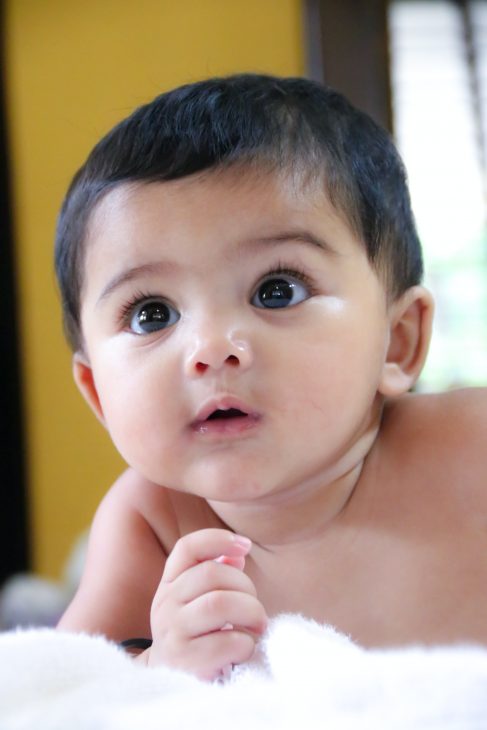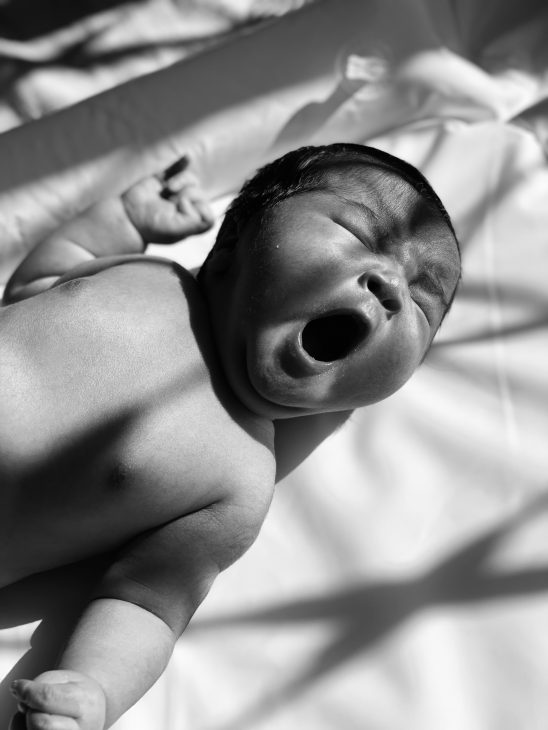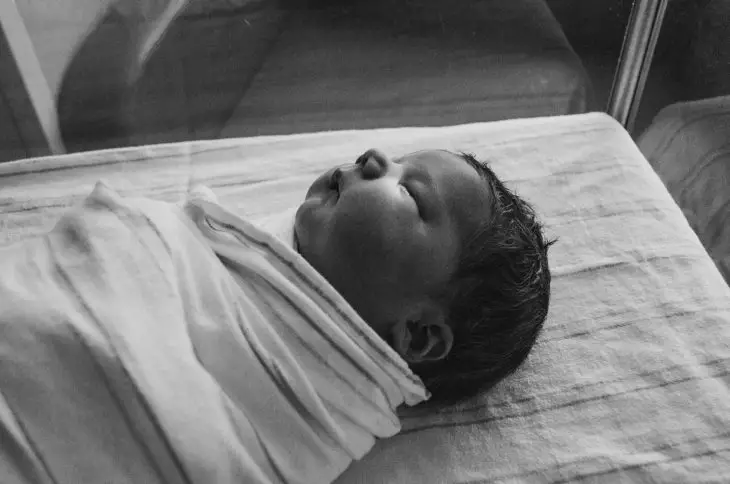Have you ever seen your baby’s lips quiver and wondered what gives? If so, try not to panic. Lower lip trembling isn’t uncommon. In fact, it usually signals healthy brain development in a child. There are times, however, when the quivering can signal that something’s wrong.
Want to learn more? Keep reading to discover more about your baby’s lips quiver.

Baby Bottom Lip Quiver
Is It Normal For Baby’s Lips to Quiver?
It is completely normal for a young baby’s lips to quiver. Just as when your baby involuntarily flails their arms, his or her lips may quiver up until two months of age.
Dr. Evans Lewis of Neurology Center of Toronto states,
“When a baby is born, his/her normal reflexes are immature resulting in them being overactive.”
If your baby is making excessive jerky movements, however, this could be a cause for concern. So, be sure to consult a doctor if your baby’s jerky movement doesn’t subside after two months.

Newborn Lip Quiver
A newborn will certainly quiver their lips, as this is common at this stage of life. When your baby does this, be sure to note his or her environment. If he or she is cold, you’ll want to remedy the situation with a wool blanket or warmer clothes. If your baby is crying, then the jittery chin is likely a result of the crying.
If neither situation is happening, then it may be a cause of more brain development. Therefore, a quivering chin at this age isn’t (usually) anything to worry about.
Why Does My Baby’s Lips Quiver?
The following is a breakdown by age of the reasons you might see your baby’s lip quivering.
Baby Bottom Lip Quiver 1 Month
At one month, your baby’s bottom lip quiver is normal. As long as your baby isn’t cold or crying, it is likely due to development in the brain.
Your baby’s lip may also tremble due to the following factors:
- Temperature
- Gas
- Hunger
- Muscle Fatigue
Baby Bottom Lip Quiver 2 Months
Even at 2 months, it is likely that a lip quiver is a result of the development of the brain. Jerky movements, even when coupled with a lip quiver, can also still be common at this age and younger.
Still, if you believe that your baby’s jerky movements are excessive, you can speak to a pediatrician for an expert evaluation.
Baby Bottom Lip Quiver 3 Months
At 3 months, your baby’s bottom lip quiver should be gone. At this point, the bottom lip quivering is likely due to something else, such as gas, coldness, or crying.
If your baby’s lip continues to tremble, see a pediatrician to rule out anything serious. Some babies experience a condition known as Benign Neonatal Sleep Myoclonus. This condition may cause your baby to jerk or tremble. This usually lasts until 4 months of age.
Baby Bottom Lip Quiver 6 Months
A baby whose lip quivers at 6 months may be cold, gassy, or crying. However, if you notice that your baby does this during or around meal times, there might be other explanations.
Baby’s Lips Quiver While Eating
Many babies begin table foods around the age of 6 months. If you notice your baby’s lip quivering around mealtime, it could be that their blood sugar is too low. This is referred to as hypoglycemia. It can be accompanied by blue skin, shaking, rapid breathing, and a high-pitched cry.
Baby Lip Quiver 7 months
Baby lip quiver at 7 months may need professional attention if your child isn’t cold. It could be due to low blood sugar or other problems that may need to be addressed by a professional.
Baby Lip Quiver 9 Months
If your 9-month-old baby still has quivering lips, seek professional medical help. This will help rule out serious underlying causes.

Toddler Lip Quiver
Quivers, shakes, and shivers in toddlers are often referred to as tremors and tics. Some tremors and tics may last longer than others with some becoming more complex over time. Scheduling a visit with your doctor can help you rule out common conditions associated with involuntary movements, such as Tourette’s Syndrome.
Baby’s Lip Quiver? May Be Normal…
Baby lip quiver is very normal for babies under the age of 8 weeks. However, after two months, it may be time to investigate. Pay attention to the times when your baby’s chin quivers and record them. Bring what you observe to your baby’s pediatrician. He or she can help you discover the causes of involuntary quivering. We don’t recommend ignoring this if it goes on for too long, especially for older children.
Leave a Reply